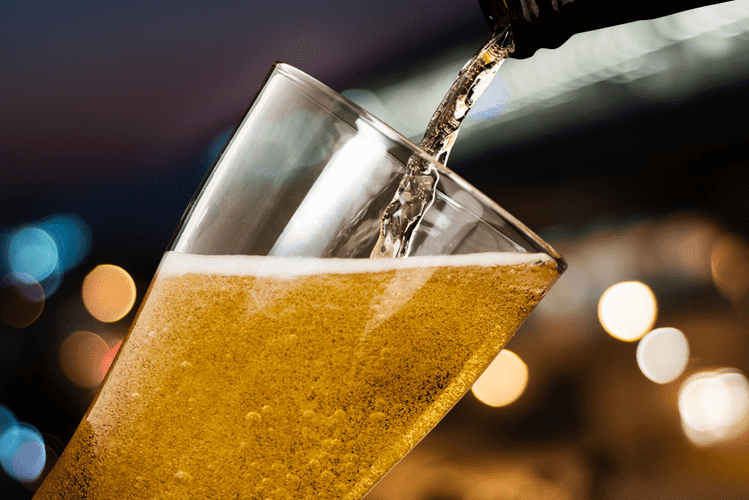¡Tu carrito en este momento está vacío!
How Does Alcohol Impact Hydration Levels? Exploring the Science Behind
Some can be tricky — like high-quality wines with a higher alcohol alcohol rehab by volume than low-quality wines. In high-altitude areas, people tend to get drunk faster, too. There’s less air pressure, so alcohol enters your bloodstream even more rapidly. If you’re drinking at altitude, you should probably start out with less alcohol than usual. Remember to listen to your body, prep with hydration minerals (aka electrolytes), and never drink on an empty stomach.
Drink Responsibly At Altitude
Grabbing a high-proof spirit or a strong cocktail in this state is particularly risky, as the potent alcohol concentration puts this damaging process into overdrive. When your body is low on water, introducing alcohol is like adding https://alate.pl/2024/05/28/most-common-characteristics-of-an-alcoholic/ fuel to a fire. Your kidneys are already trying to hold onto every last drop of water, but the hormonal interference from alcohol forces them to do the exact opposite.

Electrolyte Imbalance and Bodily Functions
It continues long after you stop drinking as your body works to get its hormones back in check. This is why chugging water the next morning doesn’t always make you feel better right away—your system is still trying to recover from the hormonal disruption. While you can enjoy alcohol in moderation and make other lifestyle choices that will maintain your hydration, alcohol will never contribute to your hydration goal.
Recognizing the Early Warning Signs
If you drink a glass of water for each glass of wine you down, you may never feel the effects of dehydration at all (and you’ll still get a slight, though pleasant, buzz). To stay hydrated, drink water before, during, and after consuming alcohol. Chronic alcohol consumption can lead to long-term dehydration effects due to its impact on kidney function and the body’s ability to regulate water balance. And while chips and popcorn are mainstays at BBQ’s, it’s best to limit your consumption of them. Too much sodium increases fluid loss as your body tries to flush it out.
- In other words, try to drink as much water as possible because the normal retention rate is not going to be what the body’s used to.
- This means avoiding things like soda and coffee, which can dehydrate you more.
- As a result, you’ll enjoy better sleep, improved mood and energy, and fewer wellness issues.
- Alcohol triggers histamine release, leading to skin redness and other unpleasant symptoms.
- This suggests that the consumption of moderate amounts of a weak alcoholic beverage such as beer is safe in terms of hydration for elderly men.
Being mindful of your drink choices can make a difference in how your body handles alcohol’s effects. Consuming alcohol while dehydrated will just make dehydration worse. The diuretic effects will cause your body to lose water faster due to increased urination. The best way to ensure proper how much does alcohol dehydrate you hydration is to drink plenty of water.

Tips on how to stay hydrated
However, the relationship between alcohol and hydration is far more complex than it appears on the surface. This article delves into the intricate interplay between alcohol consumption and water intake, exploring the potential impacts on health and hydration levels. So, of course, nothing is going to beat water (or even better, a drink packed with essential electrolytes such as Hydrant) for hydration. This is especially true when considering the short-term effects of alcohol, such as hangovers, and the damage it can do long term (weight gain, addiction, and even organ failure). However, it’s likely that a weak beer will do a better job of keeping your hydration levels topped up than drinking higher ABV wine or spirits. Pure alcohol contains 7 calories per gram (g), which makes it the second most calorie-dense macronutrient (just behind fat).
However, because of physiological changes due to ageing, older adults are at a higher risk of dehydration. In addition, recent research suggests a gender difference in the regulation of urine production 28. Consuming alcohol in moderation may help reduce the risk of severe dehydration, but it is not a foolproof method. Moderate drinking can lessen the potential diuretic effects compared to heavy drinking; however, even moderate amounts can still contribute to some degree of fluid loss.
What Type of Alcohol Dehydrates You The Least?
If being well-hydrated is one of your personal health goals, water is your best bet. Water is obviously the best source of fluid, but realistically, do other beverages, including alcohol, count toward your daily quota, and if so, how much? Here is everything you need to know about alcohol and hydration.
por
Etiquetas:
Deja un comentario